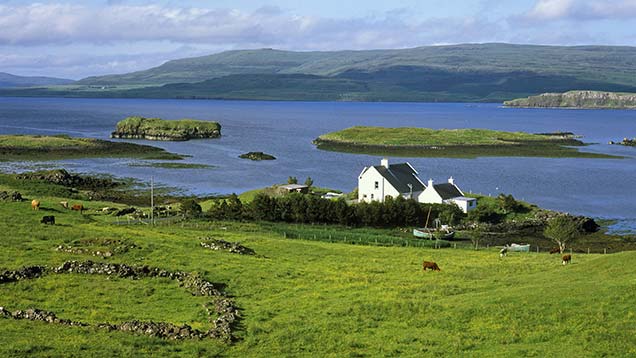Scottish farming income slides 18% in 2014
 © Rex Shutterstock
© Rex Shutterstock Falling cereal and potato prices caused Scottish farming income to fall 18% in 2014.
Scotland’s total income from farming (Tiff) slumped from £823m in 2013 to £688m last year, according to the first estimate.
Good weather and a bumper harvest saw income from spuds drop 38% to £170m and cereals slide 11% to £381m.
See also: Farm income swings show volatility challenge
Milk income actually rose 6% to £447m, as the crashing markets in the autumn and winter were tempered by record prices in the first half of the year.
In livestock, output from finished cattle and calves dipped very slightly to £661m, while the sheep sector saw a 15% rise in income to £203m.
Farming was helped a little by lower costs, as feed, fuel and fertiliser prices all saw significant drops.
NFU Scotland president Nigel Miller said the headline figures hid the real challenges for farm businesses, as the accounting period did not reflect the world today.
“The downturn in world markets since July 2014 has seen commodity prices plunge and strip out any margins being made at that time,” he said.
“Key sectors of Scottish agriculture are losing money heavily and that fragility is exacerbated by a fracture in trade with Russia and stalling Chinese markets.”
Mr Miller called on the EU to use intervention buying and export guarantees urgently, or risk forcing farmers out of business.
In the longer run, the fall in farm income comes after a record 2013, where Tiff hit its highest level in 20 years. Total farm income has also doubled since 1998.
Scotland’s rural affairs secretary Richard Lochhead said the long-term trend was more encouraging, but it was disappointing to see income fall.
He said the Scottish government could have done more to help farming flourish if it had received the €223m extra CAP money the UK chose not to pass on.
“The Common Agricultural Policy that is now in place is designed to target support at active farmers, but the complexity of these reforms underlines the need to be able to review and amend the implementation detail in the next year or two – something I continue to press for in Europe,” Mr Lochhead said.
